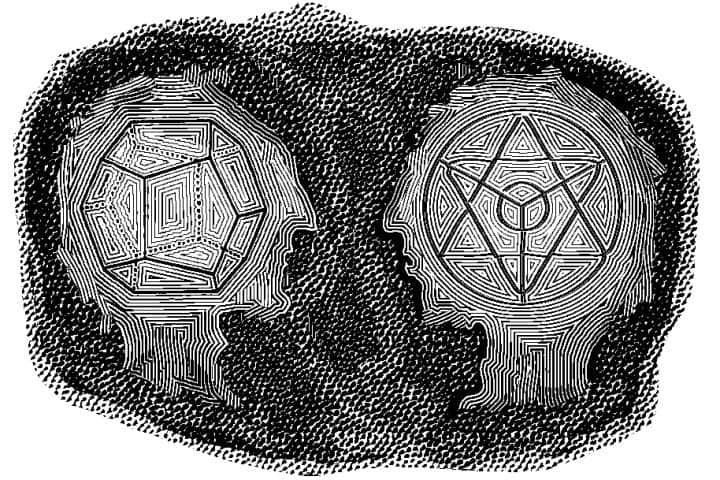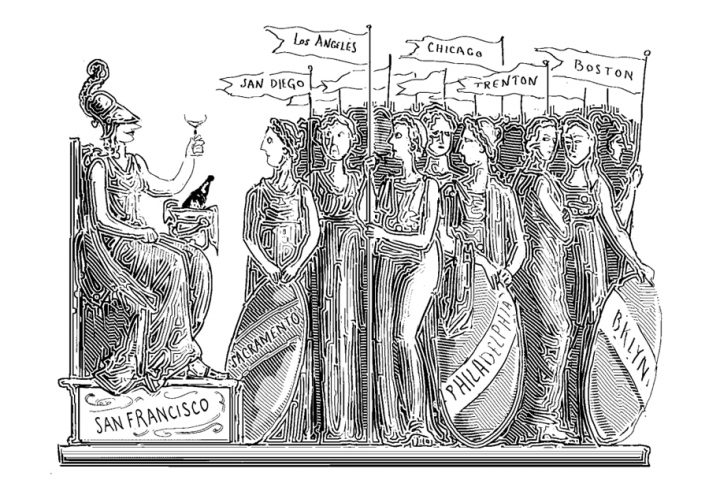Books Reviewed
A review of Teaching Plato in Palestine: Philosophy in a Divided World, by Carlos Fraenkel
Carlos Fraenkel’s Teaching Plato in Palestine: Philosophy in a Divided World takes the reader on a whirlwind tour of five cultures, guided by the author’s efforts to teach philosophy in each of them. The book passes through Palestinian East Jerusalem, the Indonesian island of Sulawesi, Hasidic New York, mostly black northern Brazil, and finally a Mohawk reservation extending from Ontario to Quebec and New York state. Fraenkel has not only taught philosophy in each of these unlikely places, but has done careful research about them. His book offers a lot of information about peoples who are inherently interesting and not very familiar to most of us. Brazil and Indonesia are diverse, complex countries almost as populous as the U.S., which are usually an afterthought in our daily headlines; Hasidic Jews and Mohawks, though geographically quite close, remain largely mysterious to most of their North American neighbors. Of all these societies, only Palestine is the recipient of 24-hour news coverage, but the world hears little about what goes on in its universities.
Fraenkel’s book is not, however, primarily a work of ethnography. He seeks above all to encourage the study of philosophy, by showing how it responds to the students’ concerns in five very different milieus. He lets his students voice their concerns, and proceeds to show them how Plato, Alfarabi, al-Ghazali, Spinoza, or some other philosopher from the past might help them grapple with the issues they face. His claim that philosophers can help us understand questions arising in every particular society is hardly new, but it is presented here in a refreshingly straightforward way that should appeal to general readers; scholars, meanwhile, might find some useful pedagogical ideas in his accounts.
* * *
Fraenkel’s main contention, elaborated in his introduction and in a substantial concluding chapter, is that his pursuit of philosophy across cultures has benefitted both his students and himself by fostering a culture of debate. The colorful classroom experiences he recounts seem to confirm this claim. But we never get to know any of Fraenkel’s students well enough to discern whether their outlook was indeed transformed by taking his course, and we do not learn what happened to any of them after the course, once they returned to their familiar surroundings. Did one of Fraenkel’s best Palestinian students, who was apparently a member of Hamas at the time of the course, moderate his position as a result of his new teacher? How did the Indonesian student who suffered insomnia as a consequence of the questions raised by Fraenkel’s class ultimately resolve his newfound dilemma? Since the discussions led by Fraenkel were invariably inconclusive, this question looms particularly large. Perhaps he will visit his students again to learn what has become of them, and how they remember his course. This might allow him to confirm his optimistic view of the benefits of teaching and debate.
There is also some uncertainty about what Fraenkel himself learned from his discussions and travels. When he first went to Egypt back in 2000, Fraenkel was by his own admission a somewhat dogmatic atheist, who had failed to think through “the secular worldview I grew up with.” The Egyptian friends with whom he debated proofs for the existence of God jolted him out of his innocence, but neither side seems to have changed its opinion: “I did not convert to Islam, nor did my Egyptian friends become atheists.” If both parties refused to budge from their point of view, did either benefit from the discussion? Perhaps they learned to express, or even respect, the other party’s point of view, and to grasp certain limitations in their own understanding: as Fraenkel puts it, he has become a “fallibilist” who acknowledges that even his own views might be mistaken. Yet he continues to present himself as a fervent non-believer, who is especially eager to raise his own daughter as such. Have his enchanting travels and lively debates in strange places really transformed his opinions? Or have they simply enhanced his capacity to articulate opinions he does not share?
* * *
Fraenkel champions a “culture of debate” and devotes the final section of the book to elaborating its virtues. His characteristically erudite discussion runs the gamut of philosophers from Plato to John Rawls, but would benefit at times from greater precision. For example, is there a difference between the culture of debate Fraenkel advocates and the ancient notion of “dialectic,” to which he occasionally alludes? Dialectic was a precise, demanding method of education developed by Socrates and Plato and then reformed by Aristotle in his Organon, allowing the student to work through a great variety of logical arguments and separate the plausible from the implausible. The Islamic and Jewish philosophers whom Fraenkel discusses, such as Alfarabi, Averroes, and Maimonides, all wrote major works distinguishing the five major syllogistic methods—demonstration, dialectic, rhetoric, sophistry, and poetry—and explaining how each should be practiced. Much as Fraenkel would like to present dialectic as identical, or at least similar, to his own culture of debate, the rules of the latter seem comparatively loose.
His pedagogy seems generally well-suited to his audiences, but should it be called philosophic in the Socratic sense? Does it seek to attain philosophic truth, or merely to enrich the students’ understanding of the particular conditions of their own cultural horizon? Some of Fraenkel’s effectiveness as a teacher stems from his ability to remain within the students’ own cultural context. In Palestine, he discusses Islam, democracy, Israel, and the Iraq war; in Indonesia, Islamic syncretism, corruption, and Orientalism; in Hasidic New York, Jewish tradition, technology, and the challenge of modern New York life; in Brazil, Catholicism, race, and economic inequality; on the Mohawk reservation, colonialism, gambling, self-government, and the relationship between blood ties and tribal membership. But does he elevate his students from issues peculiar to their own society toward a more universal dialectic, or simply help them better articulate the concerns of their own cultural milieu?
Fraenkel argues that the main purpose of studying philosophy in high school in Brazil is to produce better democratic citizens. This is a laudable political objective, but is it the goal of philosophy? Consider the case of al-Ghazali, whom Fraenkel singles out as a model of philosophic skepticism. Having won renown in the late 11th century as a teacher for the Seljuk dynasty in Baghdad, al-Ghazali eventually came to find his appointment stultifying. He chose to abandon family, money, honor, and political prestige, for the sake of years of solitary wandering in restless pursuit of knowledge. Another of Fraenkel’s models, Benedict Spinoza, left his ancestral community to pursue a solitary life of contemplation. Fraenkel does not appear to urge his students to undertake such pilgrimages, but rather to contribute to their societies in more mundane ways.
Even if the culture of debate that Fraenkel wishes to foster is not quite identical to the “philosophy” of his title, it remains highly salutary. Few would dispute his claim that learning to debate political, cultural, and religious issues in a more intelligent manner is important for both democratic citizens and their leaders. And conducting debates, as Carlos Fraenkel has, across religious and cultural lines does seem to be good for “social peace.” It has also resulted in a lively, informative book.




